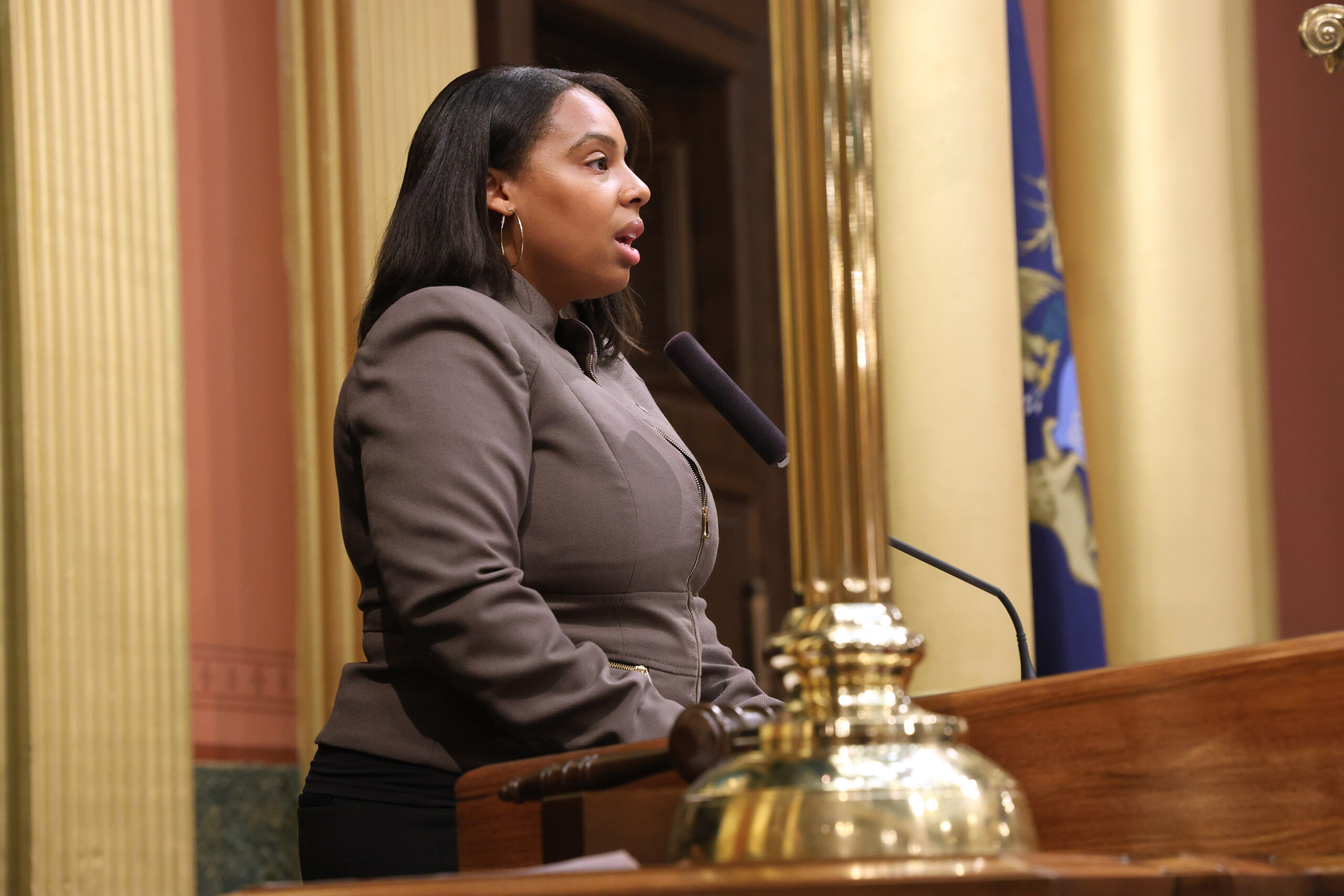LANSING, Mich., April 9, 2024 — The House Democratic Caucus joins Michiganders across the state in recognizing April as Fair Housing Month — the lawmakers are take this opportunity to celebrate the progress Michigan Democrats have made in securing equal access to housing, while acknowledging the work that still lies ahead to ensure everyone has the freedom to afford a safe and equitable place to call home. This month-long observance is a time to reflect on strides made since the Fair Housing Act of 1968 and to address ongoing challenges to eliminate housing discrimination and lower costs for working families.
“Every Michigander deserves to live in a safe, affordable and welcoming community,” said state Rep. Kristian Grant (D-Grand Rapids), chair of the House Economic Development and Small Business Subcommittee on Housing. “Fair Housing Month serves as a reminder of our responsibility to continue fighting for housing equity and to dismantle the barriers that prevent too many individuals and families from accessing the homes they need and deserve.”
Grant, a passionate advocate for housing reform, helped to pass a bill enhancing fair housing in Michigan. The bill builds on the impact of FHA by ensuring that real estate agents understand fair housing law to advocate for their clients by requiring that they take at least one hour of fair housing continuing education to maintain their licenses. The rules also apply to rental property managers. Grant also introduced a bill to encourage the creation of new land banks, which focus on redeveloping properties into housing units.
“Housing is a necessity, not a luxury. We simply need more affordable housing options. My colleagues and I in Lansing are working to make housing more equitable, accessible and affordable,” said state Rep. Jenn Hill (D-Marquette). “Businesses in the U.P. are struggling to hire workers because potential employees can’t afford the cost of housing. In addition, I am hearing from people of all ages about the lack of housing, from older folks looking to downsize now that their children are grown as well as from young people looking for their first home to start a family. Expanding housing options is a win-win for the state, and that’s why we’re working so hard to achieve it for the people of Michigan.”
The state recently passed legislation to unlock new economic development tools for affordable housing development projects through the state’s brownfield program. The bills allow tax revenues captured through local brownfield redevelopment authorities to fund affordable housing costs with the approval of the Michigan State Housing Development Authority, making it cheaper and easier to build affordable housing in Michigan. The legislation is expected to increase funding for new housing developments by roughly $40 million per year.
“The fight for fair housing is as relevant now than it was in 1968 when Martin Luther King Jr. raised the issue that having access to housing is key in the pursuit of racial justice and equity. I think folks forget it wasn’t long ago that Black men who’d fought for this country, were disenfranchised by the GI housing bill, or the redlining of mortgage and insurance companies outpricing people of color from homeownership, or restrictive covenants — the discrimination was written in the housing policies,” said state Rep. Donavan McKinney (D-Detroit). “This Fair Housing Month, we remain steadfast in our commitment to the principle that fair and affordable housing is a right, not a privilege.”
Last week, Gov. Gretchen Whitmer announced over $18 million in Low-Income Housing Tax Credits across the state, which is expected to produce or rehabilitate over 700 new housing units, with much of the investments going to urban centers like Detroit and Grand Rapids. For example, the Brewster Wheeler Recreation Center in Detroit is being transformed into 120 affordable housing units thanks to recently receiving almost $3 million in tax credits. The Low-Income Housing Tax Credit is a federal tax incentive program, with funds distributed by the states, designed to encourage private investment in the development and rehabilitation of affordable rental housing for low-income households.
###

